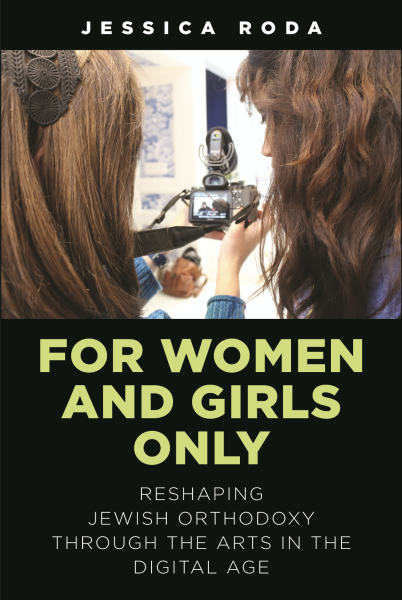A Georgetown University School of Foreign Service (SFS) professor won the 2024 Special Interest Group for Jewish Music prize, the Society for Ethnomusicology, an organization which compiles scholarship across all genres of music, announced Nov. 26.
Jessica Roda, an assistant professor in the SFS’s Center for Jewish Civilization, published “For Women and Girls Only: Reshaping Jewish Orthodoxy through the Arts in the Digital Age,” for which she won the award, in March 2024. The book explores the ways in which women in Hasidic Jewish communities, which follow the strictest level of Judaism and remain relatively isolated, as well as women who have left their communities, use the arts to increase and redefine their autonomy and agency.
Roda said the book challenges the idea that having agency as a woman necessitates having a public persona and exposing your identity.
“I would say the big argument of my book is a way to rethink women’s agency and publicity,” Roda told The Hoya. “Because there is always this idea that to be women, to have agency, you need to show your face, you need to show your voice.”
The Special Interest Group for Jewish Music prize is given annually to a new work in Jewish music scholarship, with nominations open to books, articles and other works.

Roda’s research examined musicals and films fully produced by Hasidic women as well as dance performances, activism and music production. These included theatrical works by Rachel’s Place Productions, which puts on plays and musicals with all-female casts for female audiences, and films by filmmaker Malky Weingarten, which are acted and produced by women.
Roda said the increasing popularity of social media created new opportunities for ultra-Orthodox female artists to reach a mass audience, especially since organizations in the Hasidic community used online events with female artists to fundraise during the COVID-19 pandemic.
“Social media completely transformed this category of the celebrity,” Roda said. “Before that, some of them were enlisted, but they were not as famous as when it exploded with COVID.”
Roda said social media changed how Hasidic women conform to their community’s rules around performance and publicity, with women often posting work publicly but tagging their songs, music videos or films with “for women and girls only.”
“They need to respect the model of modesty in their environment,” Roda said. “But, all of them did more than what was accepted with technology to allow them to push the boundaries and to reinvent the way to be public.”
“In this case, they are putting the responsibility on men,” she added. “But, that’s a very new thing.”
Samantha Yershov (MSB, SFS ’25), who is minoring in Jewish Civilization, said research into this niche subset of the Jewish population will help create a more complete picture of Jewish culture.
“The Jewish community is so diverse, with so many different subgroups and cultures, so it’s super interesting to learn about what values we have in common and where we differ, and why,” Yershov wrote to The Hoya.
Roda added that women’s ability to earn a profit from music production and other forms of entertainment redefines the idea of womanhood in Hasidic culture.
“It’s a broader reflection of what exactly it means in the 21st century to be a woman in this community, but what can we learn about agency and autonomy as well, even in the context of this conservative religious community,” Roda said.
Josh Bernard-Pearl (SFS ’25), who was a teaching assistant for Roda’s class, said he enjoyed learning about how to understand how communities relate music, specifically referencing Orthodox women.
“I come from a Jewish background where I was really only exposed to one style of Jewish community,” Bernard-Pearl wrote to The Hoya. “There is so much diversity in the Jewish community so to be able to see that in something as lively and culturally rich as music is amazing.”
Roda said her book changes the understanding of women’s artistry and entertainment within the Orthodox community, finally assessing it as a fully developed industry.
“That’s the first book talking about this as an industry, not only as something that is religious and social, that women are making money out of it, that is showing the faces of those women beyond what they’re expecting just as being mothers and wives,” Roda said.













